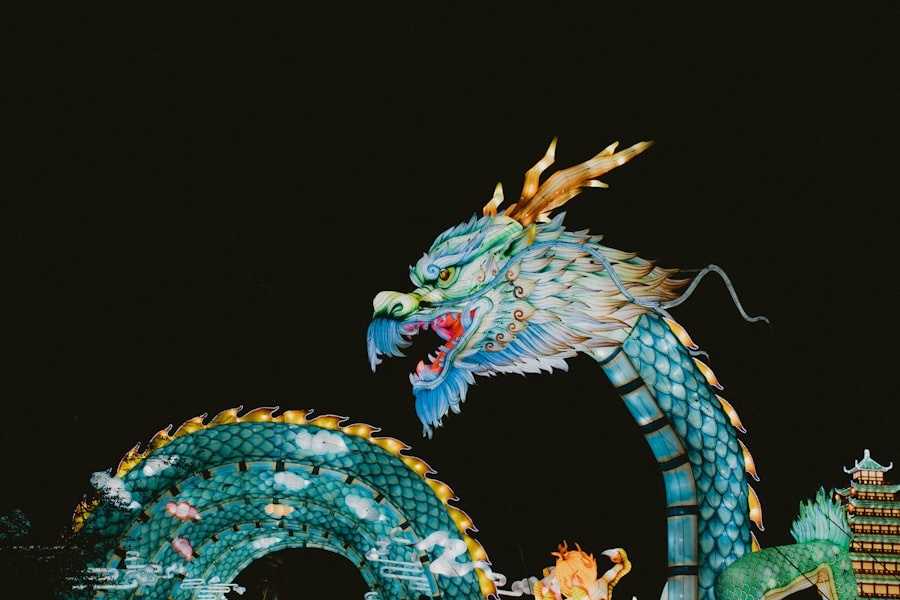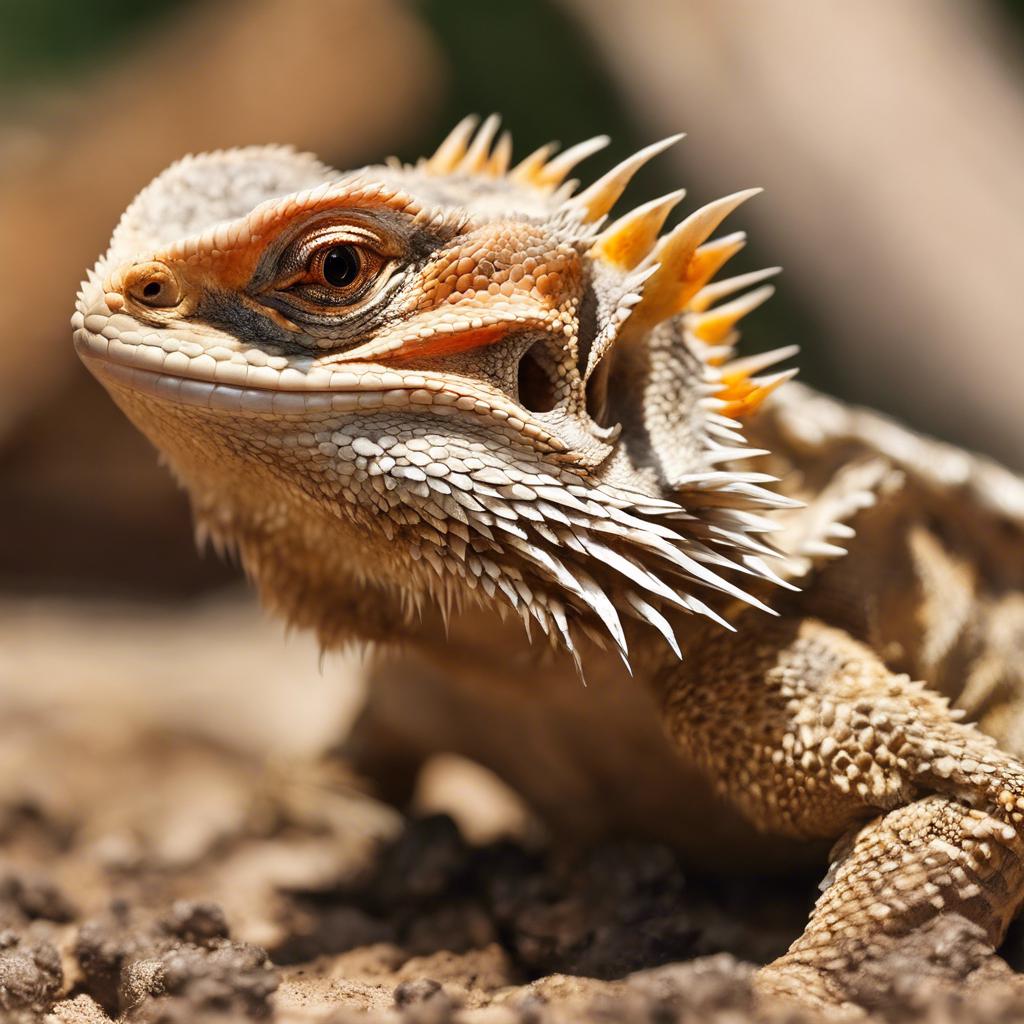Bearded dragons are popular reptile pets known for their unique appearance and docile nature. These reptiles are native to Australia and have become increasingly popular as pets due to their friendly demeanor and relatively low maintenance requirements. However, like any pet, bearded dragons require proper care and attention to ensure their health and well-being.
Proper care for bearded dragons includes providing them with a suitable habitat, a balanced diet, and regular veterinary check-ups. It is important for owners to be aware of the potential health issues that can affect these reptiles and take the necessary steps to prevent and address them.
Key Takeaways
- Bearded dragons require proper hydration for their overall health and well-being.
- Dehydration in bearded dragons can lead to serious health issues and even death.
- Physical signs of dehydration in bearded dragons include sunken eyes, wrinkled skin, and lethargy.
- Behavioral signs of dehydration in bearded dragons include decreased appetite and activity levels.
- Common causes of dehydration in bearded dragons include inadequate water intake and high temperatures.
Importance of Hydration for Bearded Dragons
Hydration is crucial for the overall health and well-being of bearded dragons. Just like humans and other animals, bearded dragons rely on water to maintain proper bodily functions. Water is essential for digestion, circulation, temperature regulation, and waste elimination.
In the wild, bearded dragons obtain water from various sources such as dew on plants, rainwater, and even by licking moisture off their own bodies. As pets, it is the responsibility of the owner to ensure that their bearded dragon has access to fresh water at all times.
Understanding Dehydration in Bearded Dragons
Dehydration occurs when there is an insufficient amount of water in the body. In bearded dragons, dehydration can have serious consequences on their health and well-being. Without enough water, their bodily functions can become compromised, leading to organ failure and even death if left untreated.
Dehydration in bearded dragons can occur due to various reasons such as inadequate water intake, high ambient temperatures, low humidity levels, or underlying health issues. It is important for owners to be able to recognize the signs of dehydration in order to address it promptly.
Physical Signs of Dehydration in Bearded Dragons
There are several physical symptoms that can indicate dehydration in bearded dragons. These include sunken eyes, wrinkled skin, dry mouth, lethargy, and loss of appetite. In severe cases, the bearded dragon may also experience weight loss and muscle weakness.
Regular check-ups with a veterinarian are essential for monitoring the health of bearded dragons and detecting any signs of dehydration or other health issues. A veterinarian will be able to provide guidance on proper care and treatment if necessary.
Behavioral Signs of Dehydration in Bearded Dragons
Dehydration can also affect the behavior of bearded dragons. They may become more lethargic and less active than usual. They may also exhibit signs of stress or discomfort, such as hiding or refusing to eat.
Changes in behavior can be an indication that something is wrong with the bearded dragon's health. It is important for owners to pay attention to these behavioral signs and seek veterinary care if necessary.
Common Causes of Dehydration in Bearded Dragons

There are several common reasons why bearded dragons may become dehydrated. One of the main causes is inadequate water intake. Bearded dragons may not drink enough water if they do not have access to fresh water or if their water source is contaminated.
High ambient temperatures and low humidity levels can also contribute to dehydration in bearded dragons. These reptiles require a certain level of humidity in their environment to maintain proper hydration.
Other factors that can contribute to dehydration include illness, stress, and improper diet. It is important for owners to be aware of these potential causes and take the necessary steps to prevent dehydration.
Prevention of Dehydration in Bearded Dragons
Preventing dehydration in bearded dragons involves providing them with fresh water at all times. Owners should ensure that their bearded dragon's water dish is clean and filled with fresh water daily.
In addition to providing fresh water, it is important to ensure that the bearded dragon's habitat is properly maintained. This includes maintaining appropriate temperature and humidity levels, as well as providing a balanced diet that includes foods with high water content.
Treatment of Dehydration in Bearded Dragons
If a bearded dragon is dehydrated, it is important to take immediate action to address the issue. Owners can try offering the bearded dragon water by gently misting them with a spray bottle or using a dropper to offer water directly into their mouth.
However, it is important to note that dehydration can be a serious condition that requires veterinary care. A veterinarian will be able to assess the bearded dragon's condition and provide appropriate treatment, which may include fluid therapy and addressing any underlying health issues.
Long-term Effects of Dehydration in Bearded Dragons
If left untreated, dehydration can have long-term effects on the health of bearded dragons. Chronic dehydration can lead to organ damage and failure, as well as compromised immune function. It can also contribute to other health issues such as metabolic bone disease and respiratory infections.
It is important for owners to understand the potential long-term effects of dehydration and take the necessary steps to prevent it in the first place. This includes providing proper hydration, maintaining a suitable habitat, and seeking veterinary care when needed.
Conclusion and Summary of Bearded Dragon Care and Health Issues
In conclusion, proper care and attention to the health of bearded dragons are essential for their well-being. Hydration is a crucial aspect of their care, as dehydration can have serious consequences on their health.
Owners should be aware of the physical and behavioral signs of dehydration in bearded dragons and take prompt action if they suspect their pet is dehydrated. Prevention is key, and owners should provide fresh water, maintain appropriate temperature and humidity levels, and offer a balanced diet to ensure proper hydration.
Regular veterinary check-ups are also important for monitoring the health of bearded dragons and addressing any potential health issues. By providing proper care and attention, owners can ensure that their bearded dragons live long and healthy lives.
If you're a bearded dragon owner, it's crucial to be aware of the signs of dehydration in your pet. Dehydration can have serious consequences for these reptiles, so it's important to recognize the symptoms early on. To learn more about this topic, check out this informative article on signs of dehydration in bearded dragons. It provides valuable insights and tips on how to keep your scaly friend hydrated and healthy. Don't miss out on this essential information – click here to read the article now! Signs of Dehydration in Bearded Dragons
FAQs
What is dehydration in bearded dragons?
Dehydration in bearded dragons is a condition where the body loses more fluids than it takes in, leading to a lack of water in the body.
What are the signs of dehydration in bearded dragons?
The signs of dehydration in bearded dragons include sunken eyes, wrinkled skin, lethargy, loss of appetite, dry mouth, and dark urine.
What causes dehydration in bearded dragons?
Dehydration in bearded dragons can be caused by a lack of access to water, high temperatures, low humidity, illness, and stress.
How can I prevent dehydration in my bearded dragon?
You can prevent dehydration in your bearded dragon by providing fresh water at all times, maintaining proper humidity levels in their enclosure, avoiding high temperatures, and monitoring their health regularly.
What should I do if I suspect my bearded dragon is dehydrated?
If you suspect your bearded dragon is dehydrated, you should provide them with fresh water immediately and monitor their behavior closely. If their condition does not improve, you should seek veterinary care.

